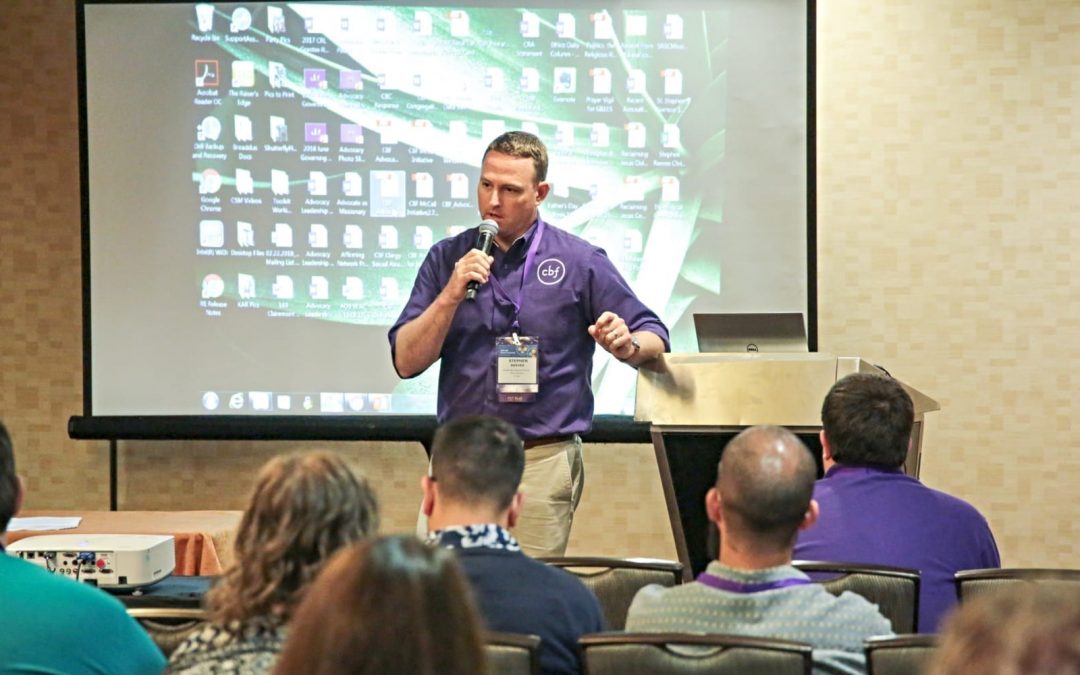The recent announcement of a pending change in executive leadership of the Cooperative Baptist Fellowship has prompted appropriate tributes to the ministry of Suzii Paynter and grateful reminders of the leadership the Fellowship has been blessed to have over the now quarter-century of its life.
Cecil Sherman, Daniel Vestal, interims Tommy Boland and Pat Anderson, and now Suzii have been faithful stewards of a calling that has had monumental significance in Baptist history.
All of us who claim the CBF as our “faith home” are in their debt.
Such times of transition naturally present a kind of “quo vadis?” moment in the life of any organization.
Building on the past and projecting into the future are the focus of much thought as plans and decisions are made for the next chapter.
The question – “Where are you going?” – takes on a special focus in a time of transition.
Being old enough to remember the thinking that conceived and birthed the CBF – and having been a grateful participant over the years – has prompted some reflection on one feature that has characterized its unique place in the recent and current period of Baptist history.
Early commitments sought for the body to be “cooperative” rather than exclusionary, true to its roots (Baptist), and somewhat resistive to the idea of being an alternative denomination (“fellowship”).
Amid natural growth and expansion of organization and mission, these three features of the name have been adhered to quite intentionally.
My own experience and perception are that a key feature and function that the Fellowship has provided is a voice of advocacy for heirs of the Baptist tradition who have been silenced by forces that have been troubled, challenged or threatened by their voice.
Early on, the “silenced voices” were those of academic and ministry settings who were declared “doctrinally unclean” due to their embrace of methods of biblical study and theological perspectives that were labeled “liberal” and, therefore, unfit for leadership in what was claimed to be the “true Baptist” family.
A “communion of the dispossessed” received those whose careers were interrupted and sometimes ended, offering affirmation and support for the victims of politico-theological maneuvering that transformed long-standing institutions into training centers for a more focused perspective resistant to the mainstream of biblical and theological study.
This advocacy for the silenced voices soon evolved into the creation and partnership of alternative theological centers dedicated to providing opportunity for study in a progressive/moderate Baptist context.
For more than two decades now, these schools have borne fruit in leadership for churches and academic settings where a “different kind of Baptist” perspective on discipleship has been modeled and nurtured.
With time, advocacy for other voices long silenced because of gender became a hallmark of CBF’s concept of ministry.
Women, both younger and older, have had their callings legitimized openly with opportunity and endorsement.
The work of a partner organization, Baptist Women in Ministry, has been a direct and concrete expression of that advocacy.
More sensitively, the challenge of advocating a hearing for the voices of LGBT persons as part of the faith family has taken careful but bold steps in the form of a major symposium in 2012, continued dialogue in assemblies, conferences and publications, and in the more recent “Illumination Project,” in response to which continued advocacy for silenced voices is occurring across the Fellowship.
A specific focus on advocacy was added to the administrative structure of CBF in 2013 with the addition of a staff position to coordinate efforts on behalf of victims of various forms of neglect and exploitation.
For five years now, that office has stood boldly beside those whose voices have needed and deserved to be heard.
While the original motive and central focus of the CBF have been to be missional, a prominent feature of its nature as a community has been an awareness that being missional also includes being an advocate for any people who are pushed aside and into the shadows of a dominant culture.
CBF has also partnered with other agencies who share this commitment, such as Bread for the World, the Baptist Joint Committee for Religious Liberty and EthicsDaily.com / Baptist Center for Ethics.
It has been a voice for the “silenced ones” in a number of areas of life, and we can hope that its new leadership will continue to nourish this fellowship of advocacy for whomever the future victims of silencing and exploitation will be.
When Jesus promised that he would ask the Father to send a Paraclete/Advocate (Greek: “para-kaleo”; Latin: “ad-vocare”), he identified that advocate with the Holy Spirit and pointed to the presence of that Spirit in the lives of his followers, suggesting that discipleship and advocacy are one and the same (John 14:15-17)
A fellowship of advocacy seems to be a faithful response to that calling.
Professor emeritus of religious studies at Mercer University, a member of Smoke Rise Baptist Church in Stone Mountain, Georgia, and the author of Keys for Everyday Theologians (Nurturing Faith Books, 2022).


